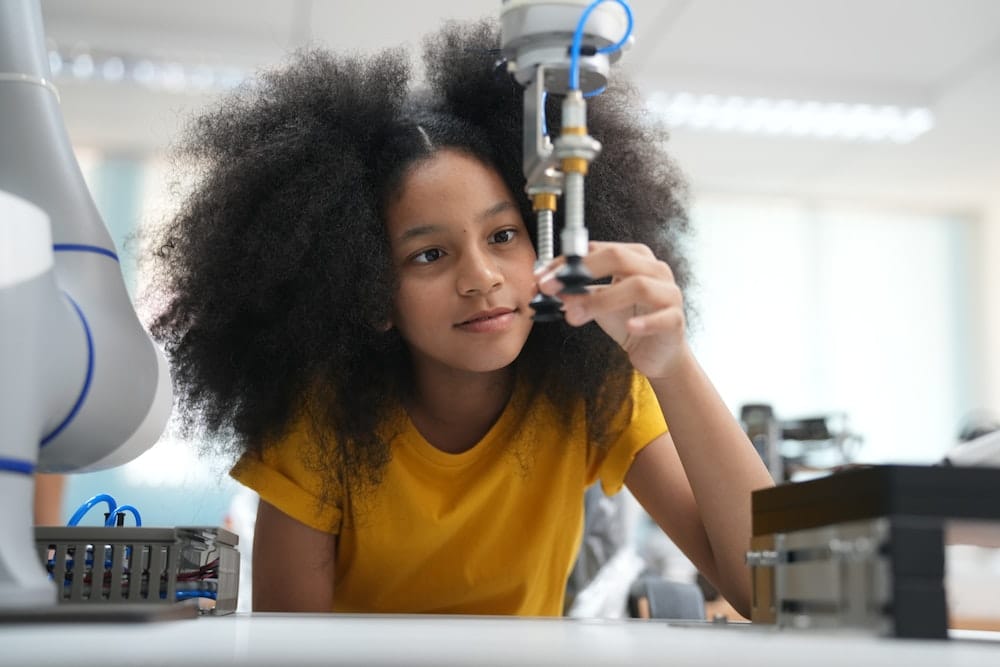In the era of digital technology, the importance of teaching children computing at an early age cannot be overstated. This article explores how primary schools in the UK are pioneering new and innovative methods of teaching coding to equip young pupils with this vital skill. In today’s technology-driven society, it’s crucial for educators to stay ahead of the curve by incorporating coding into the curriculum.
The Importance of Learning Coding at an Early Age
The advent of the digital age means that being able to understand and manipulate code is becoming an increasingly important skill. More than just a vocational skill, learning to code teaches problem-solving, enhances creativity, and improves computational thinking. Children who learn to code at an early age are likely to gain a deeper understanding of how technology works, which is a valuable skill in today’s technology-driven world.
In the same genre : What Are the Key Strategies for UK Construction Businesses to Reduce Carbon Footprint?
The UK government has recognised the importance of teaching coding in primary schools. In 2014, it introduced a new national curriculum which includes coding. This initiative was a bold step, making the UK one of the first countries in the world to mandate coding lessons for children as young as five.
Innovative Teaching Methods for Coding
Effective education often involves making learning fun and engaging, and teaching coding is no exception. Many UK primary schools are embracing innovative teaching methods to make coding more accessible and interesting to children.
Additional reading : How Can UK Craft Distilleries Maximize Direct-to-Consumer Sales Online?
One such method is the use of interactive games. Games such as Minecraft and Roblox have been used in classrooms to teach coding concepts in an engaging way. These games provide a fun and engaging platform where children can learn and apply coding skills. Through gameplay, pupils can learn about algorithms, sequences, and debugging, among other coding concepts.
Another innovative method being adopted in schools is the use of robots and robotics kits. Tools like the Bee-Bot floor robot and the LEGO WeDo 2.0 kit allow children to write code that controls a robot. This tangible outcome makes the coding process more engaging and understandable for young children.
Integrating Coding into the Curriculum
While standalone coding lessons are effective, integrating coding into other areas of the school curriculum can make learning even more impactful. By combining coding with other subjects, children can see the practical applications of their coding knowledge. This method not only makes learning more engaging, it also provides context and relevance to what they are learning.
For example, in science lessons, children could use coding to collect and analyse data. In maths, they could use code to solve problems or create graphs. In English, they could code interactive storybooks or games. This approach helps children see the relevance of coding to their everyday lives and other areas of study.
Training Teachers to Teach Coding
While there is a clear demand for coding education in schools, one of the major hurdles to its implementation is the lack of trained teachers. To combat this, some primary schools in the UK are providing extensive training programs for their teachers.
These programs often include workshops, online courses, and mentoring schemes that aid teachers in acquiring the necessary skills to teach coding effectively. Furthermore, these programs often focus on helping teachers develop a deep understanding of coding, enabling them to teach it confidently and handle any queries or difficulties that their students might have.
Collaborating with Tech Companies
Another innovative method being used by UK primary schools to teach coding is through collaborations with tech companies. Companies like Google and Apple have programs designed to help schools integrate coding into their curriculum.
These programs often provide free resources, such as lesson plans, online tutorials, and coding tools, which teachers can use in their classrooms. Additionally, these collaborations often involve workshops and training sessions for teachers.
Tech companies also often organise coding events and competitions, which can help to make coding more engaging and fun for students. For example, the Hour of Code campaign, organised by the non-profit Code.org, is a global event that introduces students to coding through a one-hour introduction to computer science and computer programming.
In conclusion, teaching coding in primary schools is essential in the digital age. The UK is leading the way with innovative methods like game-based learning, robotics, and collaborations with tech companies. These methods not only make coding more engaging for students but also help to prepare them for a future in which digital skills will be paramount.
Incorporating Micro:bit into Coding Lessons
One innovative tool that has been making coding accessible and appealing to young learners in the UK primary schools is the BBC micro:bit. A pocket-sized computer, the micro:bit is designed to make coding simple and fun. By using the micro:bit, students can write their own code and see it come to life on the display of tiny LED lights.
The micro:bit has a simple interface that is easy for young children to understand. It uses a block-based coding language which is perfect for beginners. Children can simply drag and drop blocks of code into a workspace to create a program.
In addition to teaching the basics of coding, the micro:bit also allows children to explore other areas of the computing curriculum. For instance, it can be used to teach concepts of computational thinking and problem-solving. By making their own games or creating simple algorithms, children can learn how to break down problems into smaller parts, identify patterns, and develop logical thinking skills.
The micro:bit also comes equipped with sensors that can detect motion and temperature, and buttons that can be programmed to perform different actions. This enables students to interact with their surroundings in new and exciting ways. For instance, they can code the micro:bit to act as a digital thermometer, a motion-activated alarm system, or a handheld gaming device.
This hands-on, interactive approach to coding allows children to see the direct results of their coding efforts, thereby making learning both fun and engaging. By integrating the micro:bit into the national curriculum, UK primary schools are helping to foster a new generation of tech-savvy young people.
The Role of Computing Education in Northern Ireland
While the UK as a whole has been proactive in introducing coding into the primary school curriculum, a special mention must be made of the strides made by Northern Ireland in the area of computing education. The Computing at School (CAS) Northern Ireland, a working group of volunteers, has been instrumental in promoting and supporting the teaching of computer science at all levels of the school system.
The group, made up of teachers and industry professionals, provides a network for like-minded individuals to share resources and ideas. In addition, they organise CPD events, which are instrumental in upskilling teachers in the field of computing education. These events include hands-on workshops, webinars, and an annual conference.
Northern Ireland has also been pioneering in its use of Key Stage 2 and 3 computing frameworks, which provide clear guidance for teachers on how to deliver the computing curriculum. These frameworks lay out expected outcomes in areas such as computational thinking, algorithms, and programming, ensuring all students receive a comprehensive computing education.
Moreover, Northern Ireland has also made significant efforts to promote gender equality in computing education. Initiatives like "Girls Who Code" target female students, encouraging them to take up coding and consider careers in the technology sector.
In conclusion, the innovative methods for teaching coding in UK primary schools are setting a strong foundation for the future generation. Whether it’s through the use of interactive games, tangible robotics kits, or pocket-sized computers like the micro:bit, these techniques are making coding accessible and enjoyable for young learners. Furthermore, collaborations with tech companies and ongoing teacher training programs are ensuring that educators are well-equipped to teach this crucial subject. As we continue to advance in the digital age, these efforts in computing education will equip students with essential skills to thrive in an increasingly technology-driven world.











